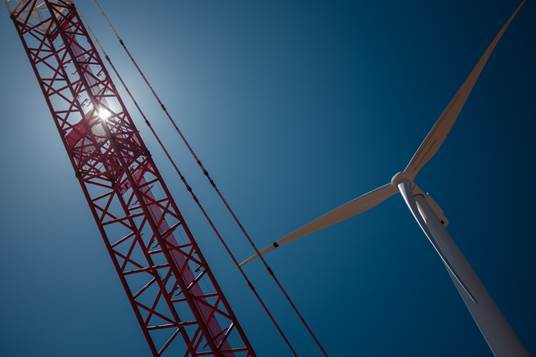
The UK is back among the top 10 most attractive countries for renewable energy investment but the outlook for the industry remains cloudy, according to the latest research.
The country has climbed four places in professional services firm EY’s Renewable energy country attractiveness index (RECAI).
Investors are reportedly looking for signs of future support for sector and it appears offshore wind will “likely” be the winner from ongoing subsidy auctions.
An ongoing lack of clarity around targets and subsidies is blamed for the negative outlook in the latest index.
It shows that the UK investment environment is more settled than recent years.
However the future of the market post-Brexit remains uncertain.
While the UK is behind schedule to meet its 2020 EU renewables target, coal-fired power has declined significantly and even reached zero for a day on 21 April.
Ben Warren, EY’s head of energy corporate finance, said: “The UK’s reappearance in the RECAI top 10 is the result of other countries falling away – notably Brazil which cancelled a wind and solar auction in December – rather than any particularly encouraging resurgence.
“The UK continues to underwhelm investors who are waiting to see if future UK policy will support and encourage the renewable energy industry towards a subsidy-free environment, where consumers can benefit from the UK’s excellent natural resources for renewable energy.
“Investors are still waiting for clarity around the post-Brexit landscape. Question marks linger around renewable energy targets, subsidies and connections with mainland power markets. Unfortunately, the likelihood of getting complete answers to those questions before the UK exits the EU are slim.”
In April the UK kicked off the second round of renewable energy auctions for Contracts for Difference (CfD) subsidies. The Government plans to allocate £730m of annual funding over three rounds, including £290m in the current round.
Warren added: “The CfD funding allocation is relatively modest and there is continued uncertainty around the outcome of the mechanism. In the absence of a buoyant CfD regime it’s difficult to see how the UK can force its way back among the front runners for renewable energy investment.”
This round of CfD auctions is open to “less established” technologies such as offshore wind, wave, tidal stream, geothermal and biomass with combined heat and power.
Falling costs and advances in technology in the offshore wind industry now represent the UK’s best hopes for future investment, according to the RECAI.
Warren said: “The offshore wind sector is showing signs of creating a sustainable industry and driving down costs to provide more value for money for UK plc. The technology is becoming increasingly competitive and we are likely to see offshore wind emerge as the clear winner from this round of auctions.”
The RECAI also saw China and India surpass the US, which fell to third in the index following a marked shift in US policy under the new administration.
The report identifies the US Government’s executive orders to rollback many of the past administration’s climate change policies, revive the US coal industry and review the US Clean Power Plan as key downward pressures on renewable investment attractiveness.
Warren said: “Movements in the index illustrate the influence of policy on renewable energy investment and development – both productive and detrimental. Supportive policy and a long-term vision are critical to achieving a clean energy future.”
In China, the National Energy Administration (NEA) announced in January 2017 that it will spend $363billion developing renewable power capacity by 2020. This investment will see renewables account for half of all new generating capacity and create 13 million jobs, according to the NEA plan.
India continued its upward trend in the index to second position with the Government’s program to build 175GW in renewable energy generation by 2022 and to have renewable energy account for 40% of installed capacity by 2040. The country has added more than 10GW of solar capacity in the last three years – starting from a low base of 2.6GW in 2014.
Warren added: “The renewable energy industry is beginning to break free of the shackles that have stalled progress in the past. More refined technology, lower costs and advances in battery storage are enabling more widespread investment and adoption of clean energy.”
Economically viable renewable energy alternatives coupled with security of supply concerns are encouraging more countries to support a clean energy future.
Kazakhstan (37), Panama (38) and the Dominican Republic (39) all entered the index for the first time.
Recommended for you
